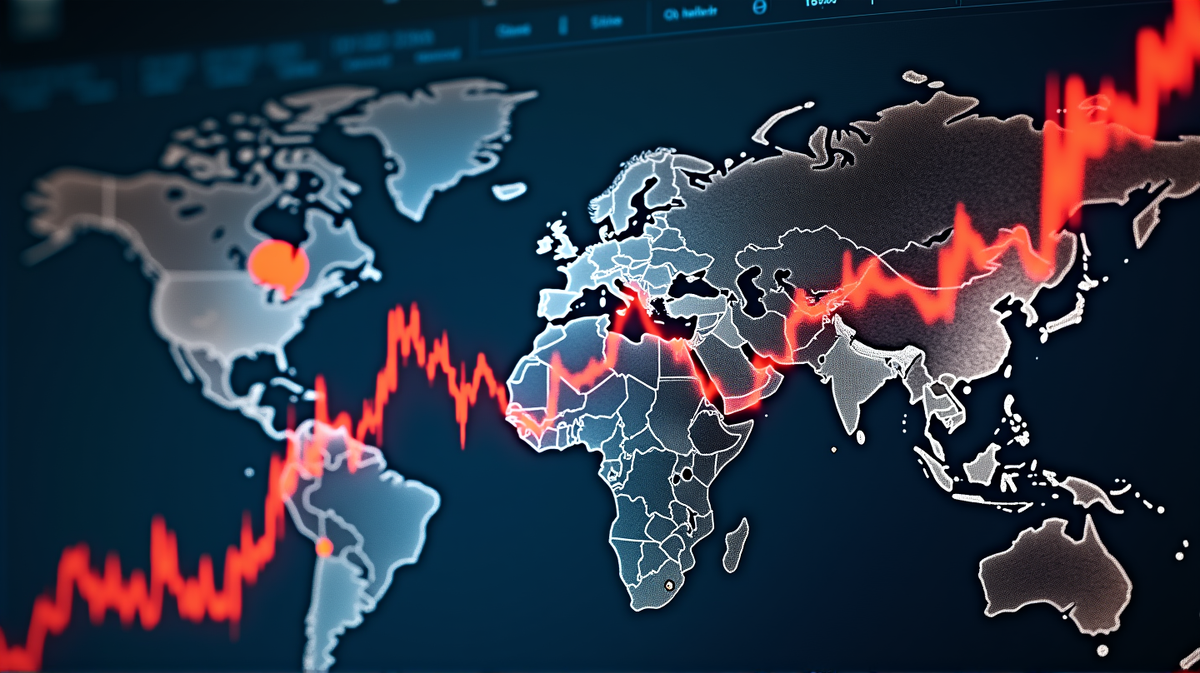Global Markets Plummet After Tech Disarray and Chinese Economic Angst
Wall Street's slump and alarming Chinese investment figures shatter the global market's equilibrium.

The Tech Sector’s Tumultuous Turn
Global markets have suffered a significant blow as tech stocks led a dramatic sell-off, triggering Wall Street’s most severe day in a month. The Nasdaq Composite, a tech-heavy index, fell sharply by 1.8% before showing signs of recovery, with the S&P 500 and Dow Jones following suit, declining by 0.7% and 1% respectively.
According to The Guardian, renowned tech company Nvidia experienced a notable fall of 3.6% amid valuation concerns, leading the downturn in the technology sector. This came as Japan’s SoftBank exited its investment, echoing wider reservations around AI companies’ market values.
The Ripple Effect Across Global Markets
The domino effect of the Wall Street upheaval reached London, where the FTSE 100 tumbled by 1.4%, losing ground that threatened its recent 10,000-point breakthrough. Key banking institutions such as Barclays, Lloyds, and NatWest faced severe declines, evidencing widespread investor unease. Europe’s financial markets mirrored this trend, with the pan-European Stoxx 600 dropping 0.9%, accompanied by downturns in France, Germany, and across Asia.
Chinese Economic Shadow Looms Large
Compounding the market anxieties, China unveiled startling economic data. With fixed-asset investment declining by a record 1.7% over ten months, concern over the Chinese economy’s health intensified. This revelation comes amid further market strains because of geopolitical tensions and potential trade ramifications.
Investors watched as China’s CSI 300 fell by 0.7%, Hong Kong’s Hang Seng by 0.9%, while tech-centric markets like Japan’s Nikkei and South Korea’s Kospi witnessed sharp reductions as well.
Broader Economic Implications and Investor Sentiment
These volatile conditions add to ongoing concerns about a sustained US government shutdown, affecting key economic indicators like inflation and unemployment statistics.
Market analysts like Jim Reid of Deutsche Bank underline the week’s volatility amid shifting Federal Reserve rate expectations and contrasting AI market speculations. Despite potential reliefs, the skepticism about stabilizing AI valuations persists as market players reassess investment strategies.
Anticipation of Strategic Responses
The prospect of fiscal adjustments and potential policy responses remains palpable. Investors await decisive actions from governments and central banks worldwide to stabilize this troubling trajectory.
With varied market dynamics at play, the unfolding scenario spotlights the interconnectedness of global financial systems, emphasizing the ever-present undercurrents of economic volatility and strategic adaptation.